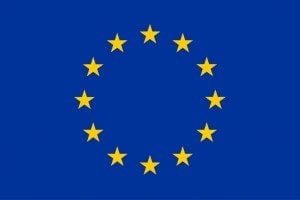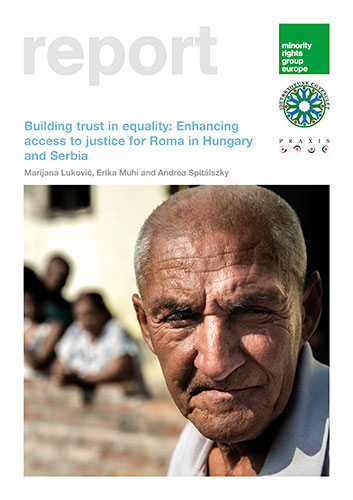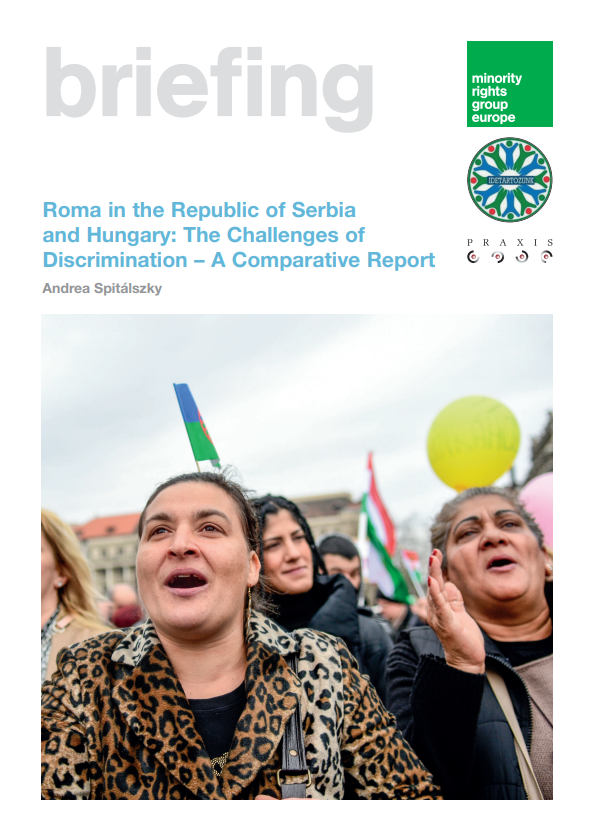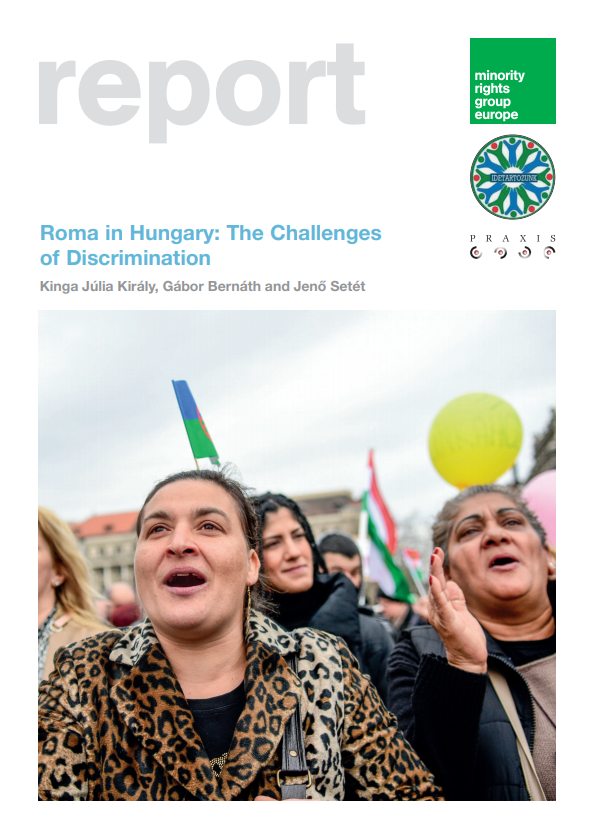
Roma Equality through Increased Legal Access (REILA): Increasing the access to justice of the Roma in Hungary and Serbia
Duration: 1 September 2020 – 31 August 2022
Community: Roma
What was this programme about?
The aim of the REILA programme was to promote and protect the rights of Roma victims of human rights violations and discrimination by raising society’s and stakeholders’ awareness, enhancing implementation of non-discrimination legislation and empowering Roma to seek legal remedies in Hungary and Serbia. The project aimed to create a virtuous circle whereby increased Roma involvement in access to justice mechanisms leads to more and better cases being filed, which leads to benefits to Roma communities which in turn increases trust in legal remedies and lawyers and encourages yet more cases to come forward.
Why did we deliver this programme?
The two target countries of the programme, Hungary and Serbia, both have a large Roma population. Roma have been discriminated against historically and despite the improvements in legal protection, there are still systematic patterns of discrimination preventing the Roma population from the full realisation of their right to employment, education, health care and housing. Roma communities tend to live in segregated neighbourhoods with low access to public services and poor public infrastructures. Similarly, many Roma face discrimination when looking for employment in relation to their ethnicity and negative stereotypes linked to their community. When it comes to education, Roma school-aged children tend to be victims of severe segregation, placed in classes and schools with only Roma pupils or disproportionately placed in special schools for children with disabilities. Overall, one of the reasons behind these problems is that in Serbia and Hungary, anti-discrimination legislation and measures to make mainstream education, employment and social policies more inclusive, are not being systematically applied.
In contrast to the high levels of continuing discrimination and recent small improvements regarding awareness, there is a low number of complaints relating to discrimination affecting Roma persons. The main reasons behind the lack of reporting and direct access to legal remedies are a lack of trust towards the judiciary and public institutions and a widespread belief that reporting discrimination will only worsen the situation and/or open confrontation with the perpetrator(s). Likewise, there is an overwhelming lack of awareness and understanding of non-discrimination legislation and inclusion policies among professionals and public officials, leading to poor case identification and a lack of protection of the rights of Roma victims of human rights violations and discrimination.
What did we do?
- We conducted research in Hungary and Serbia to map the different fields of discrimination against Roma and the obstacles to their access to justice. As a result, we produced three reports (find the link to the reports below).
- We trained 26 lawyers on national and international anti-discrimination law and minority rights to strengthen their capacities and enable them to provide legal aid for Roma victims of discrimination and to assist them with reporting discrimination cases.
- We trained 25 CSO representatives who work closely with the Roma community on identifying discrimination cases, where to refer Roma victims of discrimination and how to conduct advocacy activities.
- We trained 27 Roma activists to strengthen their capacities on how to provide advice, support and encouragement to Roma victims of discrimination who may be considering accessing a legal remedy.
- Roma mediators and partners conducted 145 field visits to the local Roma communities to raise awareness about discrimination and the available legal remedies. We reached out to over 900 Roma community members.
- Free legal counselling was provided in 32 instances and 14 discrimination cases were reported to the national equality body or other relevant institutions established for the protection of equality.
- Ten advocacy meetings were organised at the local and national levels to address various issues related to discrimination against Roma.
- Partners submitted two shadow reports for the European Commission’s 2021 Serbia report and the United Nations Human Rights Council’s Universal Period Review of Hungary
- A lessons learned report was published that resumed learning about the field and legal work conducted in the framework of the project (find the link to the report below).
Our publications
-
Building trust in equality: Enhancing access to justice for Roma in Hungary and Serbia
-
Roma in the Republic of Serbia and Hungary: The Challenges of Discrimination – A Comparative Report
-
Roma in Hungary: The Challenges of Discrimination
-
Roma in the Republic of Serbia: The Challenges of Discrimination
Who were our partners?
Our partners were:
- Praxis is a national non-governmental organisation established in 2004 in Belgrade to protect human rights by providing legal protection and advocating for the elimination of systemic obstacles to access to rights.
- Idetartozunk (We Belong Here Association) is a Roma emancipation organization based in Hungary that strives for the identity and social-civic equality of Roma people and Roma communities.
Who funded this programme?
This programme was funded by the European Union’s Rights, Equality and Citizenship Programme (2014-2020).
What did the external evaluation say?
According to an anonymous respondent ‘the community’s awareness of discrimination and protection mechanisms was strengthened’. This sums up the successful achievement of two crucial, linked project elements as part of REILA’s empowerment approach: awareness leading to protection.
Strengths which ensured the successful implementation of the programme included: good context and needs analysis; evidence-based and ‘evaluative learning’ approaches integrated into project design and applied from the very beginning; and strong baseline reports and comparative studies.
Added value was created through an empowerment and capacity-building approach for beneficiaries on how to report cases of discrimination, who improved their capacities to participate in and contribute to the defence of their own rights. They no longer depend exclusively on the good will and discretion of state officials and local authorities.
New awareness regarding the existing support to seek legal remedies was raised by emphasising outreach, which greatly influenced the perceptions, beliefs, motivation, skills and competencies of beneficiaries, so they could take greater control of their own lives and contribute to inclusive local development.
Local ownership of programme activities ensured national coverage of the programme. The national partners played the most important roles and were recognised as the main bearers of the activities in their countries. They assured the participation of other local activists and CSOs forming the national network, thus assuring regular contact with beneficiaries throughout both countries.
Research efforts incorporated in the programme further strengthened the focus on discrimination as a root cause of the situation of Roma people in Hungary and Serbia, a neglected issue in both countries.
Coherence of programme activities with key national strategies in Serbia and Hungary and complementarity with similar projects and programmes implemented in the region ensured that the initiative has and will continue to contribute consistently to the protection of the rights of Roma in the region.
The evaluators recommended that the programme be replicated and extended as funds allow, with more intensive information exchange and cooperation between Roma communities, the local Roma government, social welfare centres, and local authorities. They also recommended to build on the explicit recognition of anti-Roma prejudice achieved in the programme, in order to further remedy the effects of discrimination, and to further the relatively successful legal aid, legal awareness and training elements in rural settings in future interventions. More Roma participation and ownership of the project was recommended, as was the use of communication with communities as its starting point for advocacy.
Find out more
A similar project to REILA, Equality for Roma through Enhanced Legal Access (ERELA), is being implemented in Bulgaria and Croatia by MRGE and its local Partners, Amalipe Center for Interethnic Dialogue and Tolerance and Information Legal Center. Also Promoting Roma Equality in Slovenia and Slovakia (PRESS) with The Center for Civil and Human Rights (Poradna) and EPEKA Association.
MRG has carried out similar programmes which focused on the human rights of the Roma in North Macedonia, Central Europe and Ukraine.
 Free Court! Free Gyöngyöspata! Roma protest in Budapest, February 2020. Credit: Gabriella Csoszó / FreeDoc.
Free Court! Free Gyöngyöspata! Roma protest in Budapest, February 2020. Credit: Gabriella Csoszó / FreeDoc.
 This content represents the views of Minority Rights Group only and is its sole responsibility. The European Union does not accept any responsibility for the use that may be made of the information it contains.
This content represents the views of Minority Rights Group only and is its sole responsibility. The European Union does not accept any responsibility for the use that may be made of the information it contains.



